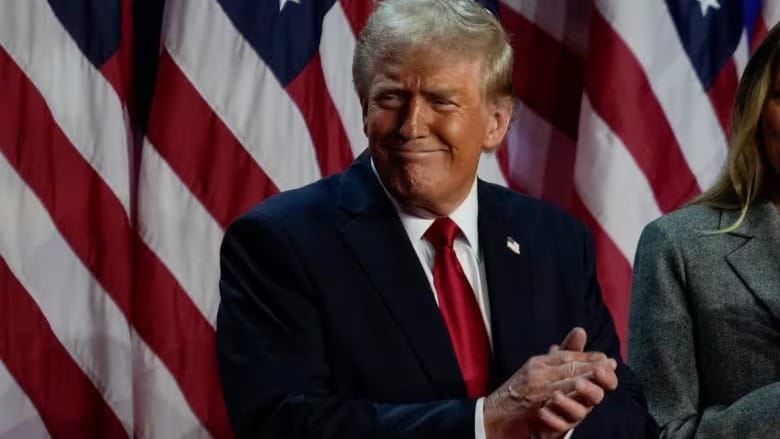What does a 2nd Trump term mean for Canada? To start, steep tariffs and pressure to spend more on military
10% global tariff on all imported goods could hit Canada hard

During his 2024 presidential campaign, Donald Trump proposed a minimum 10 percent global tariff on all imports, calling "tariff" "the most beautiful word in the dictionary." Now, with a second term secured, Canada and other U.S. trading partners are preparing for this policy to possibly take effect.
Following Trump’s win, Prime Minister Justin Trudeau congratulated him, highlighting the deep-rooted friendship between Canada and the U.S. "I know President Trump and I will work together to create more opportunity, prosperity, and security for both of our nations," Trudeau said. However, experts warn that such a widespread tariff could cut Canada’s GDP by as much as five percent.
For those who dealt with trade tensions during Trump’s first term, this move feels all too familiar. "Welcome back to an administration that put national security tariffs on the Canadian aluminum that its own military buys to make a point no one understood," said Flavio Volpe, head of Canada’s auto-parts association, referencing the 10 percent tariff on Canadian aluminum imposed in 2020.
Possibility of an Exemption for Canada?
Volpe suggested that Canada’s cooperation with the U.S. in blocking Chinese imports might help secure a trade exemption. However, Trump has now floated the idea of tariffs on all imports, aiming to push manufacturing back to the U.S.
At a recent rally in Raleigh, N.C., Trump issued a specific threat to Mexico, warning of an immediate 25 percent tariff on Mexican imports unless immigration from Mexico was controlled, with plans to escalate the tariff if the situation remained unchanged.
Meanwhile, Deputy Prime Minister Chrystia Freeland has reassured Canadians of the government’s positive relationships across U.S. political parties. Still, with approximately $3.6 billion in goods and services moving daily between Canada and the U.S., a 10 percent global tariff could significantly affect Canada’s economy. It’s expected that Ottawa will attempt to negotiate an exemption, or else consider actions to dissuade Trump from implementing it. Failing this, Canada may face a trade conflict with the U.S., including the potential for retaliatory measures.
A report from TD Economics suggests that Trump may use tariffs as leverage in renegotiating CUSMA, the trade agreement with Canada and Mexico, in 2026.
Implications for Defence Spending
Trump’s stance could also put more pressure on Canada to increase its defense spending, a bipartisan concern in the U.S. with calls for Canada to meet NATO’s spending target of two percent of GDP. Currently, Canada allocates 1.3 percent but aims to reach 1.76 percent by the end of the decade. Elbridge Colby, a former Trump administration defense strategist, has suggested economic pressure on Canada to meet this goal. Trump recently remarked that the U.S. may withdraw its defense support for allies who don’t reach the two percent target.
Potential Impact on Immigration
Trump’s proposed crackdown on undocumented immigrants in the U.S. could result in a record number of deportations, potentially driving more people across the border into Canada. Christopher Sands of the Canada Institute at the Wilson Center noted, "Individuals [may] try to run to Canada to avoid that [deportation],” which could strain Canadian immigration resources.
In response to housing market pressures, Canada recently announced cuts to immigration levels. Trump seized on this, claiming that "even Justin Trudeau wants to close Canada’s borders," while criticizing U.S. immigration policy as overly lenient.
As Canada braces for these changes, officials and industry experts remain focused on negotiating terms that will protect the country’s economy and trade interests.





